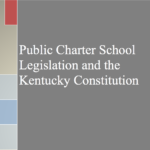DANGER IN DC? The competitive education sector in Washington, DC is once again in danger from opponents in Congress who want to prevent the SOAR Act from being reauthorized, again. Despite support from House Speaker Paul Ryan and the leadership, the modest $45 million program which is a lifeline to students to attend the school (link to Serving our children) of their choice and supports traditional and public charter schools alike is opposed by the teachers unions and thus their supporters in Congress. Time to take action. Learn more and write your congressional representatives now.
EACH TIME EDUCATION FAILS, THE AMERICAN DREAM DIES A LITTLE BIT. In an excerpt of his new book, Charter Schools Work: America’s Failing Urban School Districts Can Be Transformed, Bush Helzberg observes that the traditional public-school systems in America’s urban cores have failed students for decades. Put simply, millions of kids from low-income families lack access to a high-quality K-12 education. Helzberg argues that this state of affairs is “not only a tremendous social injustice, but is in direct conflict with the American dream ethos inspired by the Constitution.” Read the rest of his insightful work, exclusively on EdReform.com.

THE POWER OF THE PEN. Jeanne Allen thinks that Arizonans should be thanking local parents, political leaders and pundits, not Washington, DC, for the recent expansion of the Grand Canyon state’s ESAs—and says so in her letter to the editor of The New York Times.
KATE O’BEIRNE, R I P. The tributes keep coming. Whether CNN, NationalReview or this perfect homage by April Ponnuru, they barely scratch the surface of the witty, wise and beautiful commentator, principled thought leader, friend, wife and mother the world lost this weekend. Kate also served as a founding CER board member, and her informal advice throughout the years was always invaluable. Jeanne Allen talks about her own experiences with Kate here. The CER extended family is but a fraction of those who feel the loss of such a great American. Our hearts and prayers go out to her friends and family.
May the road rise to meet you.
May the wind be always at your back.
May the sun shine warm upon your face.
And rains fall soft upon your fields.
And until we meet again,
May God hold you in
the hollow of His hand.






















The Top 9 Moments You Missed When We Debated Charter Schools
Are charter schools overrated? This was the topic at hand for Wednesday night’s Intelligence Squared debate. Jeanne Allen and Gerard Robinson advocated for charter schools as they took on Gary Miron and Julian Vasquez Heilig. The discussion was impassioned, intelligent, and civil (mostly). If you didn’t get the chance to tune in, here are the highlights:
Jeanne Allen’s closing remarks:
“I thank Gary and Julian. I vehemently disagree with your position but I respect your passion, your integrity, and your commitment. I will work every day of my life to change your minds.”
While Gerard and Jeanne didn’t land the New York vote, they had plenty of support from people watching at home.